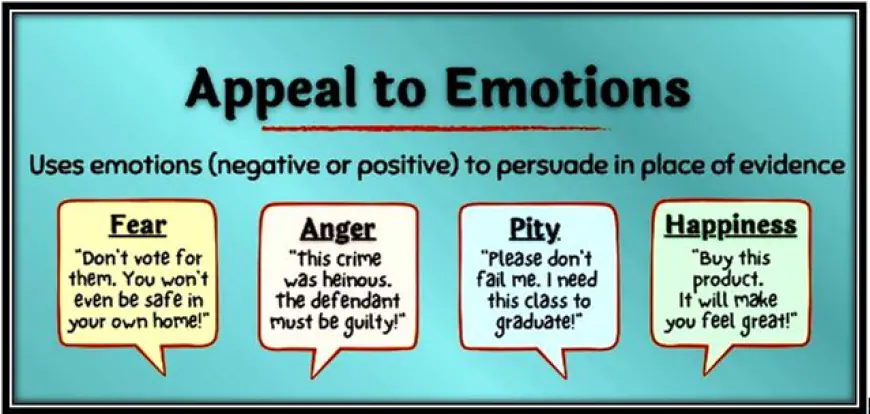Can Learning About Logical Fallacies Help Us Identify Deceptions?
Master logical fallacies to spot deception! Learn how understanding them can protect you from manipulation and misinformation.

Introduction: Understanding Logical Fallacies
Logical fallacies are not just innocent errors in reasoning; they can be powerful tools for deception. By intentionally using fallacious arguments, people can manipulate others into believing falsehoods or making poor decisions. For example, the appeal to fear fallacy preys on people's emotions, convincing them to act a certain way based on irrational fears rather than logic. Similarly, the straw man fallacy distorts an opponent's argument to make it easier to attack, diverting attention from the actual issue at hand. Understanding these tactics is crucial for identifying and combatting deception in our daily lives.
Furthermore, logical fallacies often go undetected because they can be subtly woven into persuasive language and rhetoric. People may not realize that their opinions have been swayed by a slippery slope argument or a false cause fallacy unless they are actively aware of these tactics. By learning about logical fallacies, individuals can become more critical thinkers and better equipped to spot deceptive arguments in politics, advertising, and everyday conversations. Recognizing these manipulative techniques is essential for safeguarding ourselves against deception and making well-informed judgments.
What are Logical Fallacies?
Understanding logical fallacies is crucial in today's world where misinformation and deception run rampant. By learning about logical fallacies, individuals can become more adept at identifying flawed arguments and deceptive tactics used in discussions, debates, and media. This knowledge empowers people to critically analyze the information presented to them, enabling them to make more informed decisions and avoid being misled by faulty reasoning.
Moreover, studying logical fallacies cultivates intellectual humility and open-mindedness. It encourages individuals to approach information with skepticism and discernment rather than blindly accepting it at face value. This not only enhances one's ability to recognize deceptive tactics but also fosters a willingness to engage in productive dialogue, promoting constructive communication based on sound reasoning rather than manipulative techniques. Ultimately, learning about logical fallacies equips us with the tools needed to navigate a world filled with misinformation and identify deceptions effectively.
Examples of Logical Fallacies in Everyday Life
Identifying and combating deceptions using logical fallacies can be a powerful tool in today's information-saturated world. By understanding common fallacies such as ad hominem attacks, appeal to authority, or cherry-picking evidence, individuals can become more adept at recognizing when they are being misled or manipulated. For example, realizing when someone is using a straw man argument to misrepresent an opponent's position can help one see through the smoke and mirrors of deceptive rhetoric.
Moreover, learning about logical fallacies not only aids in spotting deception but also helps sharpen critical thinking skills. By dissecting flawed arguments and recognizing faulty reasoning, individuals can better evaluate the validity of claims and counter misleading narratives effectively. Ultimately, equipping oneself with knowledge of logical fallacies serves as a defense mechanism against misinformation and manipulation, empowering individuals to navigate through the complex web of truths and lies that permeate our society.

How Logical Fallacies Can Be Used to Deceive
In conclusion, recognizing logical fallacies empowers individuals to critically evaluate arguments and identify deceptive tactics. By understanding common fallacies such as ad hominem attacks, appeal to authority, and false dichotomies, one gains the ability to discern manipulative reasoning and flawed rhetoric. This skill is essential in today's world of information overload and persuasive media messages, allowing people to sift through the noise and distinguish between valid arguments and deceptive strategies. Moreover, being able to spot logical fallacies cultivates a mindset of intellectual skepticism, encouraging individuals to question information presented to them rather than accepting it at face value.
Furthermore, the power of recognizing logical fallacies extends beyond individual decision-making; it plays a crucial role in fostering a society that values rational discourse and evidence-based reasoning. When more people are equipped with the knowledge of logical fallacies, public debates become more constructive and focused on substantive issues rather than devolving into mudslinging or misleading rhetoric. As a result, communities are better able to address complex problems by engaging in meaningful discussions grounded in sound logic and critical thinking. Ultimately, recognizing logical fallacies not only serves as a personal defense against deception but also contributes to the collective pursuit of truth and informed decision-making.
The Importance of Learning About Logical Fallacies
In a world brimming with information and persuasion tactics, the ability to discern between truth and deception has become an essential skill. Logical fallacies, the sneaky tricks used to manipulate our thinking, are lurking in everyday conversations, advertisements, news reports, and social media posts. But can learning about these rhetorical devices actually empower us to detect deception more effectively? This article delves into the intriguing intersection of critical thinking and identifying deceit by exploring how understanding logical fallacies can serve as a powerful tool in navigating the maze of misinformation that surrounds us.
As we navigate through a sea of conflicting claims and hidden agendas, it's easy to feel like a clueless passenger on a sinking ship of distorted reality. However, by unraveling the intricate web of logical fallacies — from ad hominem attacks to slippery slope arguments — we may just find ourselves equipped with an intellectual lifeboat capable of steering us away from deceitful tides. Join us on this thought-provoking journey as we explore how arming ourselves with knowledge about logical fallacies can empower us to be more discerning consumers of information and shield ourselves from being led astray by cunning deceptions.
Identifying and Combating Deceptions Using Logical Fallacies
In a world inundated with information, the ability to discern truth from deception has become an essential skill. Logical fallacies, those subtle tricks of faulty reasoning that undermine sound arguments, are often used to manipulate and deceive. But what if understanding these logical errors could serve as a powerful tool in detecting deceit? Imagine being able to spot deceptive tactics in political speeches, marketing campaigns, or even personal interactions. By delving into the realm of logical fallacies, we may uncover a unique insight into the art of deception and arm ourselves with the critical thinking skills necessary to navigate the maze of misinformation that surrounds us. Join us on a thought-provoking journey as we explore whether learning about logical fallacies can indeed empower us to identify deceptions and safeguard our minds against manipulation.
Conclusion: The Power of Recognizing Logical Fallacies
In a world inundated with information and persuasive rhetoric, the ability to discern truth from deception is an invaluable skill. Have you ever found yourself swayed by a compelling argument, only to later realize it was built on faulty logic? Logical fallacies are subtle traps that can lead us astray, clouding our judgment and leaving us vulnerable to manipulation. But what if understanding these fallacies could serve as a powerful tool in unraveling deceit and identifying deceptive tactics? In this article, we'll delve into the fascinating realm of logical fallacies and explore how they can sharpen our critical thinking skills, equipping us to navigate through the maze of misinformation with clarity and confidence. Join us on this journey as we uncover the hidden art of deception and arm ourselves with the knowledge needed to see through its veils.







